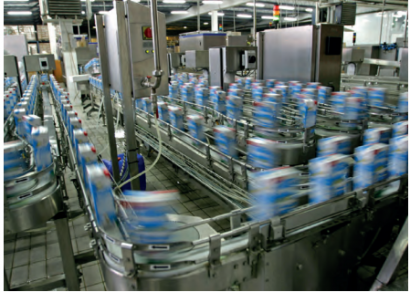BCAS urges best practice compressed air guidance is maintained during lockdown

The British Compressed Air Society is urging manufacturers and processors to adhere to best practice guidance concerning the treatment, quality and maintenance of compressed air during this period of lockdown. The BCAS technical helpline is receiving an increasing number of enquiries during the Coronavirus pandemic from end-users concerned that their compressed air supply is adequately protected and seeking advice to ensure that there can be no risk from airbourne contaminants.
To assist, users are advised to refer to BCAS’s free guides, which can be downloaded from the website at www.bcas.org.uk, including BPG102 for compressed air purity and BPG104 for best practice advice on the filtration
Managing contaminants
Air compressors draw in micro-organisms as solid particles contained within ambient air, first through panel filters and then through intake filters. These microorganisms consist of viruses, pathogenic bacteria, moulds and fungi, which, if left untreated, can survive as spores with the potential to grow in the downstream compressed air.
Therefore, the installation of appropriate inline coalescing filtration and its regular maintenance are essential, as these will remove multiple contaminants include micro-organisms, oil and water aerosols. Ambient air contaminants would have to remain in aerosol form to pass through panel and intake filters in order to enter the compressor intake. This is highly unlikely, but even if panel and intake filtration were compromised, the contaminant would not remain in aerosol form during compression and therefore, would present no danger.
This is because during compression, the air temperature is high (in excess of 120degC) and the heating time is short, meaning that viruses do not tend to survive the compression process.
BCAS Best Practice Guideline 102
To help avoid any contamination issues, BCAS advocates following Best Practice Guideline 102; in particular, the specification for direct contact applications.
The best practice guidance (BPG102) was prepared in conjunction with the British Retail Consortium Trading Limited (BRC) and is designed to help processors make informed decisions relating to compressor systems operating at a pressure greater than 0.5 bar.
The guide is available for free download from the BCAS website at https://www.bcas.org.uk/article/bcasfood-grade-compressed-air-best-practiceguideline-5.aspx
This guidance recommends using a dewpoint of -40degC to inhibit the growth of micro-organisms, and filtration to reduce the micro-organisms and particulate. The specification requires the installation of a minimum of two aerosol reduction filters (down to 0.01mg/m3 of oil aerosol and particle reduction down to 0.01 micron).
These protective measures will ensure that, should the COVID 19 or other virus still survive the heat of compression, aerosol reduction filters in the compressor room combined with a very low dewpoint and point-of-use dry particulate filters will remove any risk from compressed air.
In addition, users should follow advice in BPG 104 entitled ‘The Filtration and Drying of Compressed Air’, which can be downloaded at www.bcas.org.uk/airtreatment. It is designed to help demystify not only the selection of the correct air treatment equipment but to provide practical advice on which contaminants can be present and their impact on the processes that compressed air is being used for.
Strict maintenance programme
A strict compressed air system maintenance programme is required for direct and Indirect contact air when used in food and pharmaceutical production. BCAS has been advising end-users to continue their routine checks, adhering to social distancing guidance throughout servicing.
Customers should use proprietary spare parts and continue to follow recommended maintenance procedures and guidelines throughout this time. The BCAS website provides a BCAS Member finder tool to help users find a qualified compressed air professional at www.bcas.org.uk/directory/
-
PPMA 2025
23 September, 2025, 9:30 - 25 September, 2025, 16:00
NEC, Birmingham UK -
Advanced Engineering Show 2025
29 October, 2025, 9:00 - 30 October, 2025, 16:00
NEC, Birmingham UK










